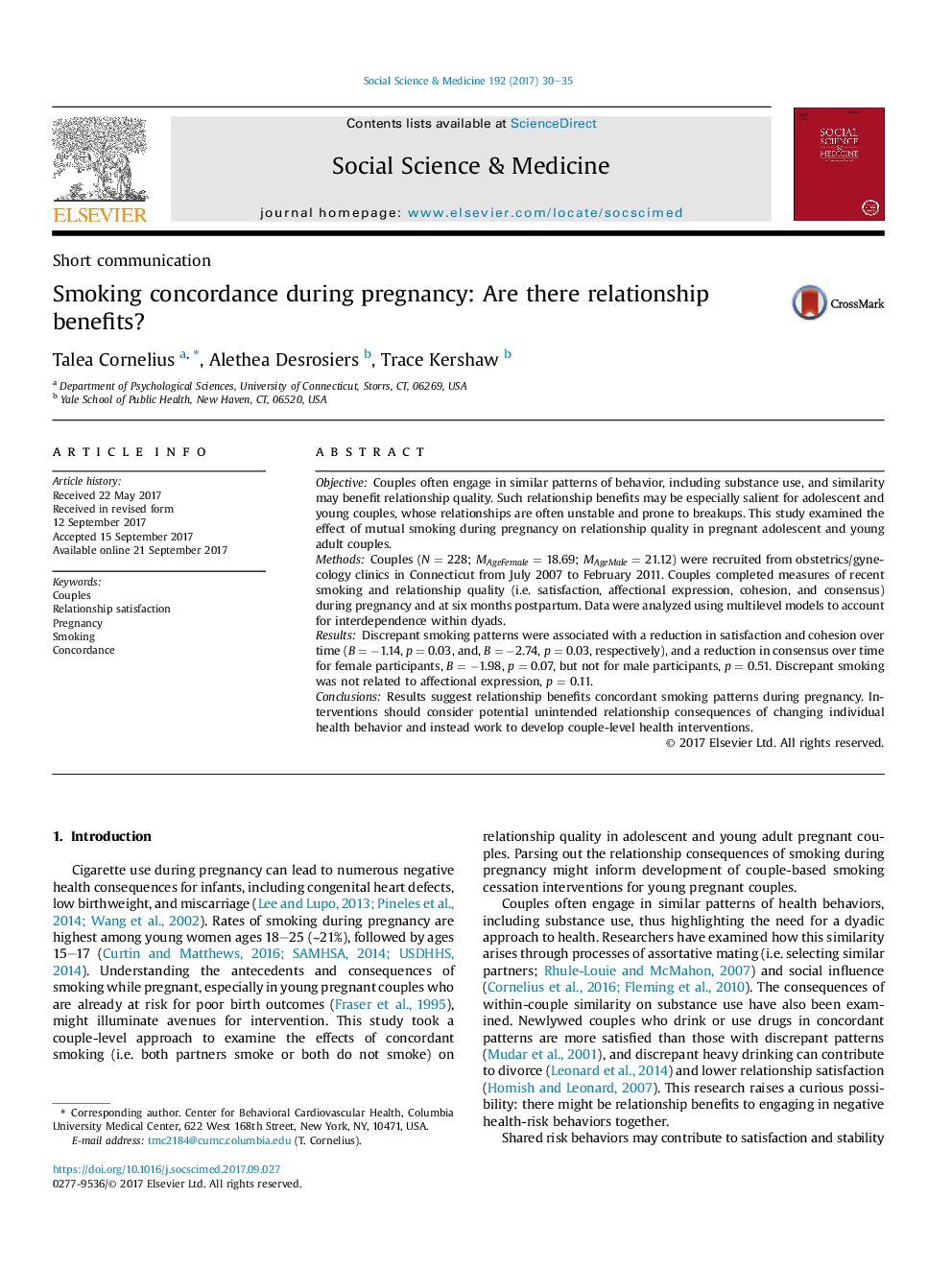| Article ID | Journal | Published Year | Pages | File Type |
|---|---|---|---|---|
| 5046362 | Social Science & Medicine | 2017 | 6 Pages |
â¢Shared behaviors within couples may benefit relationship quality over time.â¢Solitary attempts to quit smoking during pregnancy may harm relationships.â¢Discordant smoking reduced relationship satisfaction and cohesion.â¢Discordant smoking reduced feelings of consensus for female participants.â¢Interventions targeting couples may improve both relationship quality and health.
ObjectiveCouples often engage in similar patterns of behavior, including substance use, and similarity may benefit relationship quality. Such relationship benefits may be especially salient for adolescent and young couples, whose relationships are often unstable and prone to breakups. This study examined the effect of mutual smoking during pregnancy on relationship quality in pregnant adolescent and young adult couples.MethodsCouples (N = 228; MAgeFemale = 18.69; MAgeMale = 21.12) were recruited from obstetrics/gynecology clinics in Connecticut from July 2007 to February 2011. Couples completed measures of recent smoking and relationship quality (i.e. satisfaction, affectional expression, cohesion, and consensus) during pregnancy and at six months postpartum. Data were analyzed using multilevel models to account for interdependence within dyads.ResultsDiscrepant smoking patterns were associated with a reduction in satisfaction and cohesion over time (B = â1.14, p = 0.03, and, B = â2.74, p = 0.03, respectively), and a reduction in consensus over time for female participants, B = â1.98, p = 0.07, but not for male participants, p = 0.51. Discrepant smoking was not related to affectional expression, p = 0.11.ConclusionsResults suggest relationship benefits concordant smoking patterns during pregnancy. Interventions should consider potential unintended relationship consequences of changing individual health behavior and instead work to develop couple-level health interventions.
